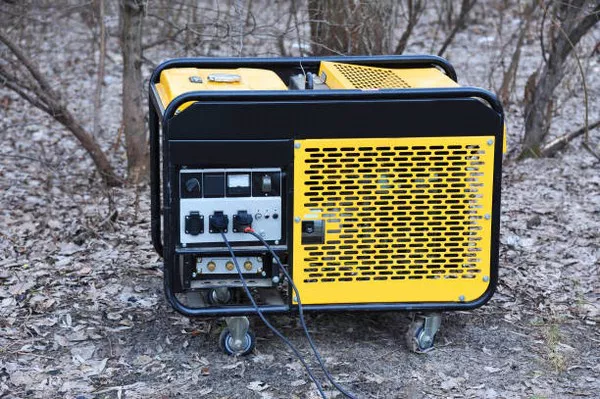Generators are essential tools for providing backup power during outages, powering tools on job sites, or supporting outdoor activities. Among various sizes, the 8000-watt generator stands out for its versatility and capability to handle multiple loads. However, a common question arises: How long will an 8000 watt generator run? This article will delve into the factors influencing runtime, practical applications, and tips for optimizing generator performance.
Understanding Generator Ratings
What Does 8000 Watts Mean?
The wattage rating of a generator indicates its maximum output capacity. An 8000-watt generator can supply up to 8000 watts of power at any given moment. This rating typically includes both running watts and starting watts:
Running Watts: The continuous power required to keep appliances and tools operating.
Starting Watts: The extra power needed to start devices that require a surge of energy, such as refrigerators and power tools.
For an 8000-watt generator, the running wattage may be around 6000 to 7000 watts, while the starting wattage can peak at 8000 watts or more, depending on the device.
Factors Affecting Runtime
Several factors influence how long an 8000-watt generator can run on a single tank of fuel:
1. Fuel Capacity
The fuel tank size is one of the most significant factors affecting runtime. Most 8000-watt generators come with fuel tanks ranging from 4 to 8 gallons. A larger tank allows for longer operation times between refuels.
2. Load Demand
The total wattage of the connected devices directly impacts runtime. If the generator runs at or near its maximum capacity (8000 watts), it will consume fuel more rapidly than if it operates at a lower load. Understanding the wattage requirements of your devices is crucial for estimating runtime.
3. Type of Fuel
Generators typically run on gasoline, propane, or diesel, each with different energy densities and consumption rates:
Gasoline: Commonly used but has a shorter shelf life and may require stabilizers for long-term storage.
Propane: Burns cleaner and has a longer shelf life, but its energy content is slightly lower than gasoline.
Diesel: Offers better fuel efficiency and longer runtimes but may be heavier and more expensive.
4. Generator Efficiency
The efficiency of the generator itself affects how long it can run. High-efficiency models convert fuel into electrical energy more effectively, extending the runtime.
5. Operating Conditions
Environmental conditions play a role in generator performance. High temperatures can increase fuel consumption, while cold weather may affect the generator’s ability to start and operate efficiently.
Estimated Runtime Calculations
To calculate the estimated runtime of an 8000-watt generator, you can use the following formula:
Runtime (hours)=Fuel Capacity (gallons)×Fuel Efficiency (hours/gallon)/Load (watts)/Generator Rating (watts)
Example Calculation
Let’s assume an 8000-watt generator has a fuel tank capacity of 6 gallons and operates at a load of 6000 watts. For gasoline, a typical fuel efficiency is about 0.5 gallons per hour at this load.
Runtime= 6 gallons×1 hour/gallon/6000 watts/8000 watts= 6/0.75 =8 hours
In this scenario, the generator would run for approximately 8 hours under these conditions.
Practical Applications of an 8000 Watt Generator
Home Backup Power
During power outages, an 8000-watt generator can power essential household appliances, including refrigerators, lights, and heating systems. Knowing how long it will run helps you plan for extended outages.
Construction Sites
Construction sites often require multiple tools and equipment running simultaneously. An 8000-watt generator provides the necessary power to operate tools like drills, saws, and compressors, allowing for efficient workflow.
Outdoor Activities
For camping or tailgating, an 8000-watt generator can power lights, cooking appliances, and electronic devices, enhancing the experience. Understanding its runtime allows users to plan their activities accordingly.
Tips for Maximizing Runtime
Prioritize Essential Loads: Only connect essential appliances to avoid overloading the generator, allowing it to run longer.
Regular Maintenance: Keep the generator well-maintained, including oil changes and air filter replacements, to ensure efficient fuel consumption.
Use the Right Fuel: Choose the appropriate fuel type for your generator, considering efficiency and storage requirements.
Optimize Placement: Ensure the generator is placed in a well-ventilated area, away from moisture and extreme temperatures, to maintain performance.
Monitor Fuel Levels: Regularly check fuel levels and refill as necessary to avoid running out of fuel unexpectedly.
Conclusion
In conclusion, the runtime of an 8000-watt generator depends on various factors, including fuel capacity, load demand, type of fuel, generator efficiency, and operating conditions. By understanding these elements, users can effectively estimate how long their generator will run and plan accordingly. Whether for home backup, construction, or outdoor activities, knowing the operational limits of an 8000-watt generator enhances its utility and ensures reliable power when needed.
By considering best practices for maximizing runtime and performing regular maintenance, users can optimize their generator’s performance and enjoy uninterrupted power supply for longer durations.
Related topics:

